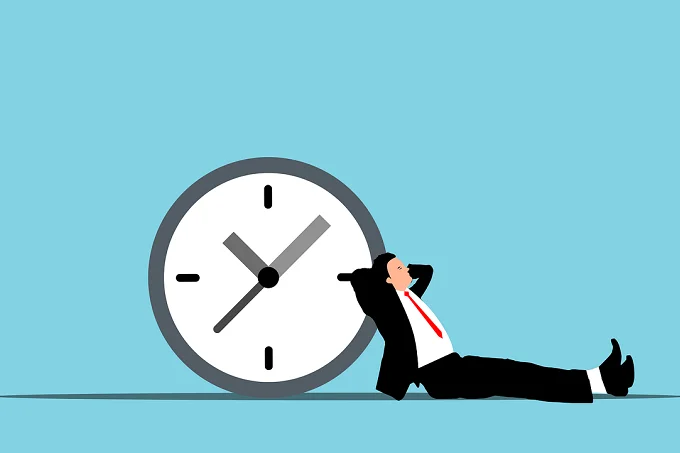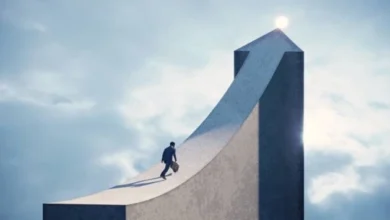9 signs you’re not ready to do what you planned

You can make plans for the future, but most of them are not destined to come true, even if you are determined. That’s because your ideas may be ill-conceived, and you may not be ready to implement them. We have collected some signs that you should not hurry up with active actions.
Signs you’re not ready to do what you planned
You’re having doubts about your decision
If you’ve made a decision and now have doubts about whether it’s right or whether you can actually make it a reality-subconsciously you’re not ready to do it. No matter how you talk to yourself, the need to take some active action literally constrains you, scares you so much that you start considering other options.
Do not scold yourself for what you procrastinate – it is better to give yourself time to analyze your thoughts and feelings, and understand what it is that keeps you from getting to work. Once you know the real reason, you will have an advantage that will allow you to get rid of doubts and start moving towards your goal.
You try to delay active action
When you’re not ready to do what you’ve planned, you start looking for reasons to delay active action. You put things off, inventing ridiculous excuses like lack of time, lack of energy, or activities that are more important to you at the moment. But in reality, you have all the resources you need to start working on your goal, you just don’t want to or are afraid to take action.
Think hard: you really are not ready to do what you have planned, or the problem is plain laziness, hidden fears, and doubts about your own abilities?
You feel like a bad person
After making a decision, you may feel like a bad person. This happens when you are going to act against your principles. For example, you hate cheating people, you despise those who do so, but suddenly you find yourself in a situation where you yourself need to do the same thing.
Remember that going against yourself is very dangerous. It will inevitably lead to disappointment in yourself, loss of confidence, the anguish of conscience, self-abuse, and in the worst cases – to complete apathy, anxiety disorder, and depression. Try to revise your plan and find other ways to reach your goal. Sometimes it’s better to stop yourself in time, give yourself more time to think, and end up doing things the right way, not the easier or faster way.
You focus on other people and not on yourself
The worst thing you can do when making any decision is to focus on someone other than yourself. For example, doing what everyone else is doing, acting the way you’ve been advised by others, acting to please another person, etc. If what you have planned doesn’t ignite you, doesn’t motivate you to move forward and do whatever it takes to make it happen, if you’re doing something not because you want to, but because you’ve been told so – take a break and think about whether you should waste your energy at all.
You set deadlines that are too vague
When you have a clear strategy, a definite plan of action, you have no difficulty in setting deadlines. But if inwardly you doubt that you will be able to implement what you have planned, you try to maximize the period in which you seek to meet. You want to give yourself time in reserve for unforeseen circumstances, laziness, attempts to correct your possible mistakes, obtaining the necessary information, etc. In general, if you can not determine the timing, it is worth wondering whether you have confidence in what you should start work.
You need support
All people need support along the way. But if you think you can’t handle the challenges that you’re going to face without other people’s contribution, you’re not ready for this. It is better for a while refuse to translate their ideas because, in any case, you should clearly understand that in case of unforeseen circumstances, you have to rely only on yourself.
Relatives, friends, colleagues, and partners, even if they are really reliable people who are ready to invest all available resources in you and your ideas, sometimes they make mistakes, give up early, are late, get sick at the most inopportune moment. Learn to count on your own strength, and only then can you hope to succeed.
You have no idea of the final result of your efforts
It’s very difficult to move forward if you have no idea what the result you want to achieve. Choosing the path, you need to know exactly what you’re going to. Otherwise, your actions will be chaotic, you’ll be contradicting yourself, there’s a great risk that you’ll abandon all your aspirations. You’re hardly really ready to do what you’ve planned if you can’t answer yourself the simplest questions like “Why do I want it?”, “How will it make my life better?” or “What do I want to get out of my actions?”
You don’t know where to start
If you have a plan, and it’s a good one – you won’t have the question, “Where do I start?” You’ll be clear on what you need to do and why, and what actions will help you prepare for a successful start. Otherwise, you’ll acquire yet another excuse for stomping around in the same place and making no attempt to get off the ground. Revise your plan, structure it, and then you can take your first step toward your desired goal.
You only take active action under someone else’s control
When the goal is yours, and you are motivated to strive to achieve it – you don’t need anyone to control you. Another thing is if you are not particularly interested in doing what you want to do: in such a situation, you will not move until you are forced to do so.
The verdict is simple – if you need control from others, it means that you are not ready internally, or you just do not want to take action. This is where you have to think about what motivated you to start, and what stops you from fully immersing yourself in your work. Once you find the answers to these questions, you’ll be able to sort yourself out and stop going down the path of resistance.




